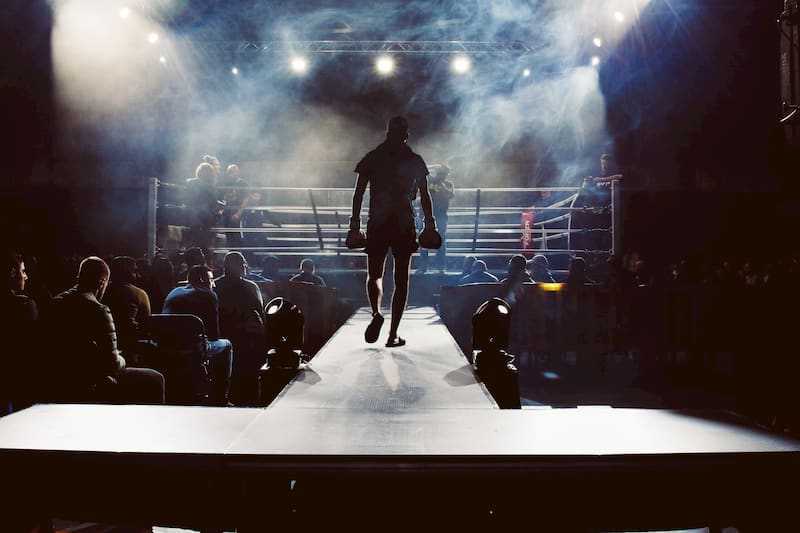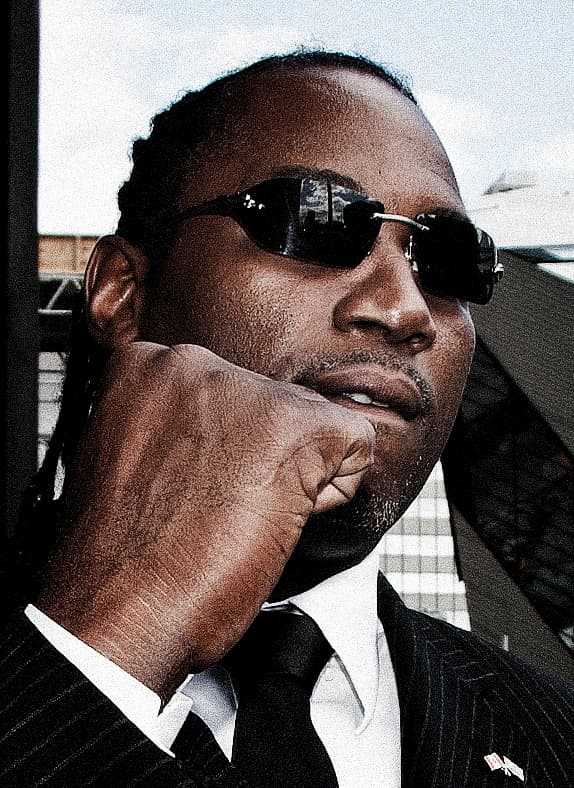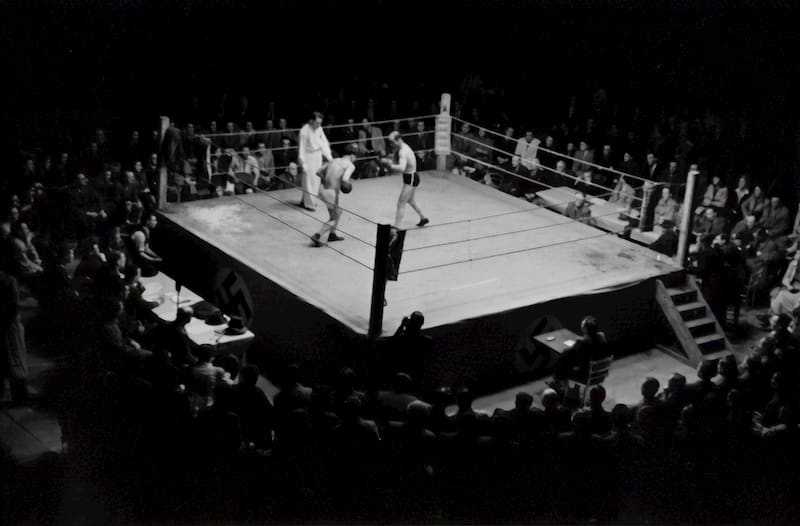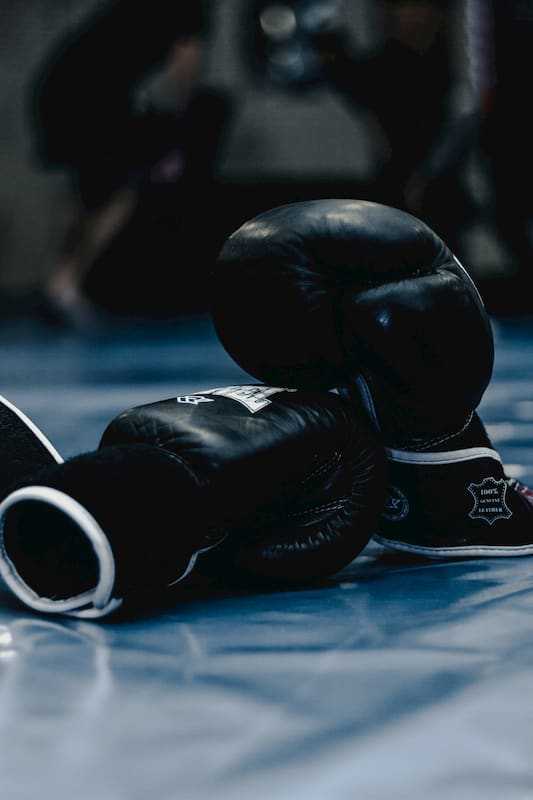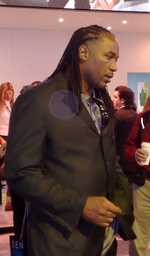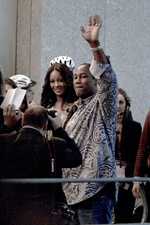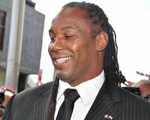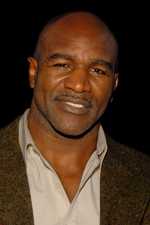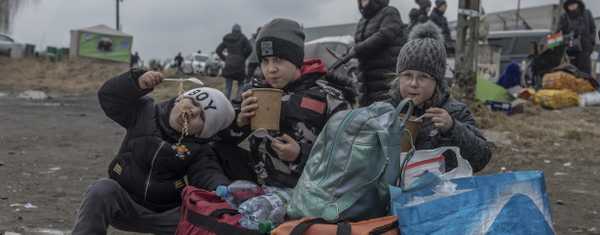1. Early life
Lennox Claudius Lewis was born on September 2, 1965 in West Ham, London, England. His parents were from Jamaica.
He lived intermittently with his mother, Violet, and his aunt. After being expelled from primary school for excessive fighting, Lewis lived at a boarding school while his mother tried to start a new and better life in Canada. When he was seven, he put on a pair of boxing gloves. He was big for his age and none of the other kids could fight as well as he, so the man of the house would put on gloves and box with him.
When Lewis was twelve, he moved with his mother to Kitchener, Ontario, Canada. He attended Cameron Heights Collegiate Institute. In the 1982-83 school year, he helped the school’s Amateur Athletic Association (AAA) basketball team win the Ontario Provincial Championship.
Lewis had an East London cockney accent and was bullied by some of his peers. On one occasion, he and his rivals agreed to meet and settle their dispute like gentlemen with the gloves on at Waterloo Regional Police Boxing Association Gym.
The rivals did not keep their appointment, but Lewis decided to try boxing anyway. He met Arnie Boehm, who became his coach, friend, and a father figure. He taught Lewis the difference between ‘fighting’ and ‘boxing.’
2. Early career
At the age of fifteen, Lewis was Ontario Golden Gloves Champion in the 165-pound division.
At the age of seventeen, Lewis decided to drop the nickname, “Junior” and go by “Lennox,” his birth name. Boehm had a robe made up to read “Lethal Lennox” embroidered on the back.
In 1983, Lewis had his first international fight. He won a gold medal in the World Junior Championship at Santo Domingo in the Dominican Republic against Cuban Pedro Nemicio. In January 1984, Lewis had his first senior international bout against Swede Bengt Cederquist in Stockholm.
He won with a 5-0 decision. Later, in that same year, Lewis was asked by Cus D’Amato to spar for a week with Mike Tyson, a promising heavyweight. Tyson was a ferocious fighter. It took Lewis a few days to understand Tyson’s style of boxing and figure out a strategy.
Between 1984 and 1988 Lewis had a mixture of wins and losses. He lost in the 1984 Summer Olympics in Los Angeles, the World Championships in 1986, but in that same year he won a gold medal in the Commonwealth fight. He lost in the 1987 Pan American fight. In 1988, Lewis fought in the Summer Olympics held at Seoul, Korea.
He defeated American Riddick Bowe and won a gold medal. He was the first Canadian to win boxing gold since the 1932 Olympics when Horace Gwynne won bantamweight honors.
After the Olympics, Lewis decided to turn pro. He wanted to fight under the British flag and moved back to England.
3. Biggest Wins
Lewis hired little-known Frank Maloney as his manager.
It was four years before his first major test and breakout fight came.
It was against Donovan “Razor” Ruddock in October 1992. The winner would meet the winner of the forthcoming Reddick Bowe-Evander Holyfield fight. Lewis defeated Ruddock after two rounds.
Bowe reneged on his promise and dumped his WBC belt in the trash can during a publicity stunt at a London hotel. This act earned Lewis a portion of the world heavyweight title. It took Lewis many years to correct the false impression that he was just a “paper” champion.
In 1993, Lennox defended his WBC title twice against Tony Tucker and Frank Bruno. He believed he was the best and became complacent. However, on September 24, 1994, a little-known former Mike Tyson sparring partner, Oliver “The Atomic Bull” McCall, defeated Lewis. McCall knocked Lewis down in round two. Lewis rose on wobbly legs, but the referee stopped the fight. Lewis was humiliated and hired a new trainer, Emanuel Steward.
Lewis attempted to get a rematch with McCall, but the WBC officials determined that Lewis had to face Lionel Butler. If he won that fight, he would get his rematch with McCall. Lewis defeated Butler in the fifth round, but the WBC did not honor its promise. Mike Tyson was scheduled to fight McCall even though he had been in prison and had not fought for four years.
A supreme court judge ruled that Lewis had been treated unfairly and issued a court order that prevented Tyson and the WBC from engaging in a future heavyweight title fight against anyone but Lewis.
On September 6, 1996, Lewis was offered four million dollars to “step aside” and allow Tyson to fight Bruce Seldon. Lewis accepted the money.
Tyson beat Seldon for the WBA title, but he relinquished it, because he wanted to fight Evander Holyfield. Tyson’s move allowed Lewis to fight for the Tyson vacated WBC title against Oliver McCall.
McCall had a drug problem and behaved like a wild animal. After the third round, he started to cry, walked around the ring during the fourth and fifth rounds, and made facial gestures to the confused audience. By the fifth round, the referee disqualified McCall for “refusing to fight” and Lewis was declared the winner.
Mike Tyson had won comeback matches by stoppage, but his manager was not ready to take any risks with Lewis. He opted for Evander Holyfield to fight Tyson.
Holyfield was a 22-1 underdog when the fight was first announced. As it turned out, Holyfield overpowered Tyson with the end coming in the eleventh round as the referee stopped the contest.
A rematch occurred between Tyson and Holyfield on June 28, 1997. In an unusual and bizarre move, Tyson twice bit chunks of Holyfield’s ear off and spit it on the canvas. Tyson was fined three million dollars for his outrageous behavior and his Nevada license was revoked.
Holyfield avoided a fight with Lewis until March of 1999. Punch statistics showed that Lewis threw and landed approximately three times as many punches as Holyfield, but the judges scored the fight for Holyfield.
A rematch with Holyfield was set for November 13, 1999. Lewis won, but he was not satisfied. There was one more formidable opponent to be beat that could complete his career and cement his legacy: “Iron” Mike Tyson.
In 2000, Lewis fought against IBF No. 1 ranked mandatory challenger, David Tua. Lewis won a comprehensive unanimous decision.
In 2001, Lewis fought Hasim Rahman in South Africa. He neglected to train properly and lost to Rahman in the fifth round. There was a “rematch clause” in the fight contract, but Rahman did not want a rematch. Lewis took him to court. The rematch was held November 2001 in Las Vegas, Nevada. Lewis won in the fourth round.
The Lewis vs. Tyson Heavyweight title match was scheduled for April 6 in Las Vegas, Nevada. At the press conference, Tyson’s behavior was bizarre. He attacked Lewis and bit him on the leg. The Las Vegas officials cancelled the fight and revoked Tyson’s Nevada license. Memphis, Tennessee won the bid and the fight was scheduled for June 8, 2002 at the Pyramid Arena.
After round three, Lewis drew first blood over Tyson’s right eye. Finally, in round eight with a swollen face and eyes cut, Tyson went down. Lewis was declared the heavyweight champion.
Lewis’s last fight was with Vitali Klitschko in Los Angeles, June of 2003. He won with a TKO. He announced his retirement on February 6, 2004 in London and vacated his titles. Lennox Claudius Lewis had a record of forty-one wins, two losses, one draw, and thirty-two wins by knockouts.
Lewis’s behavior and boxing style puzzled many American sports pundits. He had never been arrested and had no criminal record. He brought style and class to a sport that some thought to be a haven for poor, under-educated people.
Lewis began dating Violet Chang, a former Miss Jamaica, in 2000. They married in 2005. They have four children.
Between 2008 and 2012, Lewis was inducted into three Halls of Fame: Canada Sports, International Boxing, and Ontario Sports.
